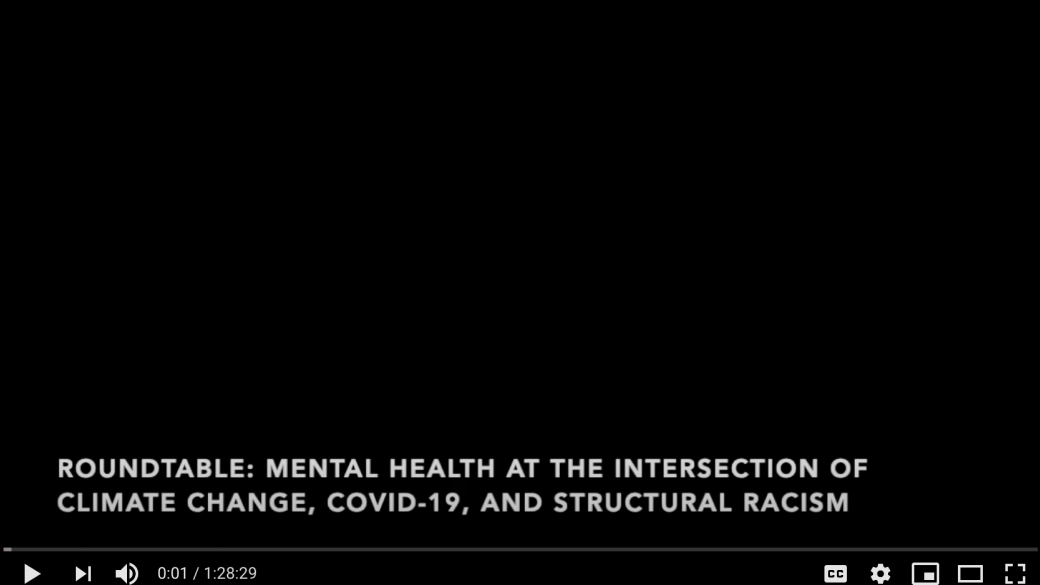The first generation of health research on the impact of climate change focused on physical health effects. But it’s now increasingly clear that climate change profoundly affects mental health as well. What’s more, some communities and populations are more vulnerable to the mental-health impacts of climate change. Structural racism is a key magnifier of these effects, as it is with Covid-19, which we know is disproportionately affecting Black, Indigenous, and Latinx communities. To live in the present is to confront the entanglement of structural racism, environmental crisis, and public health emergency—and to reckon with their cumulative effects on individual and collective mental health.
Consisting of student-activists, faculty, and mental health professionals, this roundtable will address the mental health challenges posed, together, by climate change, the Coronavirus pandemic, and structural racism. Among the questions we’ll discuss: How have your approaches to environmentalism and mental health changed in the last six months? Are the established keywords in individual mental health—resilience, optimism, active coping skills, connection to place, culture, and community—adequate to the pressures of our moment? What is the relationship between mental health and activism?




